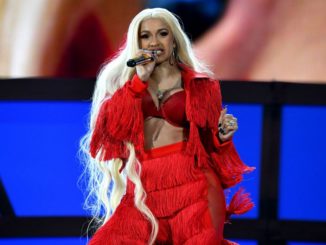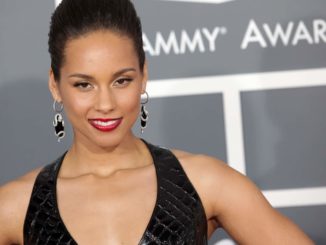In traditional Beyoncé fashion, there’s no information available in advance about which parts of Black Is King have been directed by whom, besides the fact that Knowles-Carter herself is credited as the film’s overarching director, writer, and executive producer, and if Black Is King is anything like Lemonade, we may never really know.
As Indiewire critic David Ehrlich wrote when defending Beyoncé’s choice not to include detailed, song-by-song director credits for Lemonade, “As helpful as that might have been, Lemonade isn’t an anthology, it’s a chorus meant to harmonize with a single voice.” Here, for Black Is King, is a close-up on each of the voices in Beyoncé’s chorus.
Emmanuel Adjei
Adjei is a Ghanian-Dutch filmmaker, schooled in Utrecht, the Netherlands and Ghent, Belgium, whose past credits include videos for Madonna’s “Dark Ballet” and “Batuka,” both taken from her 2019 album Madame X. The latter, which takes its title and musical cues from the Cape Verdean genre batuque, was shot on the coast of Portugal and references the country’s role in the slave trade. Adjei also directed a video for the Iranian-Dutch singer Sevdaliza’s “Shahmaran,” an Afrofuturist parable which begins with Black men lugging what looks like a space-age cruise ship through the desert, and culminates when one of them breaks free, makes his way into an underground room, and finds himself tempted by images of success: a sports car, a gun, a voluptuous woman, an LP. As he explained, “It’s the story of the black man, who continues life in a cycle of oppression. The modern chains on black men today are the aspirations of decadence, power and success that create a false sense of autonomy and freedom. This leaves them victim of addictions to power and materialism, unable to venture outside what is ‘expected’ of their behavior.”
On Instagram, Adjei said that he was “overwhelmed and honored” to have the image of a body floating in space above the earth chosen for Black Is King’s official poster, a good indication he’s responsible that portion of the visual album.
Blitz Bazawule
Ghanaian filmmaker Samuel Bazawule began his career as hip-hop artist Blitz the Ambassador, releasing three albums before turning to filmmaking with The Burial of Kojo, which was included in the 2019 Whitney Biennial and, after being distributed by Ava DuVernay’s company Array, became the first movie from Ghana to be added to Netflix, where it’s still available to stream. Although it’s explicitly inspired by traditional African storytelling—Bazawule said it was the kind of movie he could imagine his grandmother making if she’d had access to a camera—there’s also a dose of the remix aesthetic and Afro-surrealism of his sometime collaborator Terence Nance, the man behind HBO’s Random Acts of Flyness.
Kwasi Fordjour
The Ghanaian-born Fordjour is the creative director at Beyoncé’s Parkwood Entertainment, having entered the company as an intern for her musical director and served as creative director for her historic 2018 Vogue cover shoot. He also has choreography credits on her 2013 videos “Drunk in Love,” “XO,” and “Grown Woman.” He’s never been credited as a director on one of her music videos before, but several of Black Is King’s other directors singled Fordjour out as the person who brought them on board.
David Boanuh
For Beyonce’s new Disney+ film “Black is King”, Ashesi university alum David Boanuh ’19 served as Director of Photography for scenes shot in Ghana, helping bring unique representations of Africa to the film described as a “a celebratory memoir for the world on the Black experience.”




